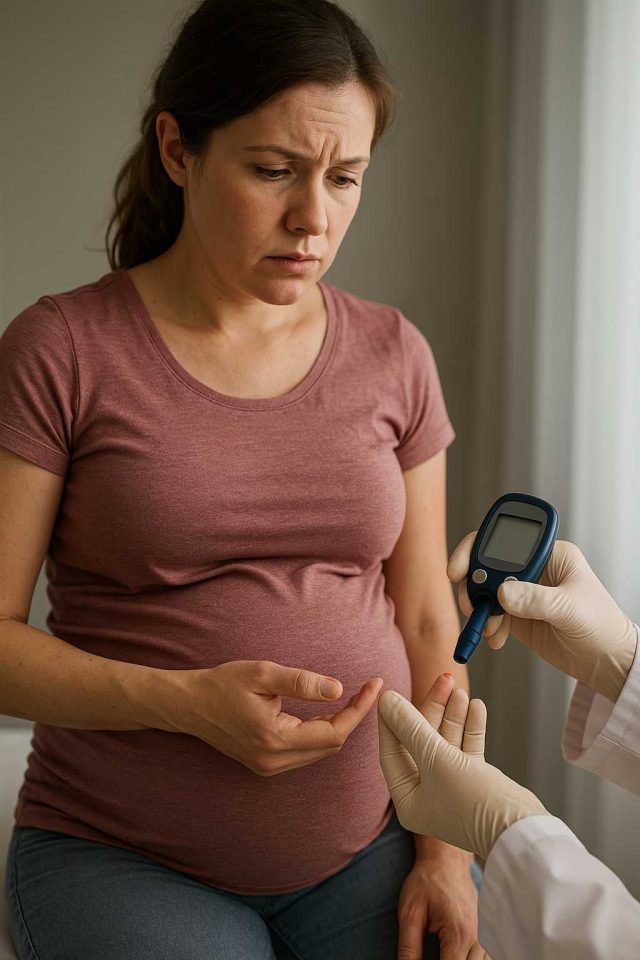For many expecting mothers, a diagnosis of gestational diabetes can be both unexpected and confusing. While the condition typically develops during the second or third trimester, understanding the causes of gestational diabetes remains a complex and evolving topic. Although we have insights into potential risk factors, the exact mechanisms behind its development are still under investigation. Could it be hormonal shifts, lifestyle, genetics, or a combination of all three?
Table of Contents
- The Biology Behind Gestational Diabetes
- Risk Factors That May Increase Likelihood
- Hormonal Interactions and Insulin Resistance
- Prevention and Early Detection
- Conclusion
- FAQs
The Biology Behind Gestational Diabetes
Gestational diabetes develops when the body cannot produce enough insulin to regulate blood sugar during pregnancy. This condition differs from type 1 and type 2 diabetes, as it occurs exclusively during gestation and usually resolves post-delivery. Nevertheless, it raises the risk of developing type 2 diabetes later in life.
Insulin resistance naturally increases during pregnancy due to hormonal changes. The placenta secretes hormones like human placental lactogen, cortisol, and progesterone, all of which can interfere with insulin’s effectiveness. As a result, glucose accumulates in the bloodstream, leading to hyperglycemia.
While this biological explanation outlines part of the picture, it doesn’t fully clarify the causes of gestational diabetes. Some women with minimal risk factors still develop the condition, indicating that more subtle interactions are at play.
Risk Factors That May Increase Likelihood
Although researchers haven’t pinpointed a single cause, they have identified several contributing factors. Genetics, ethnicity, and family history significantly impact a woman’s risk profile. For example, those with a parent or sibling with type 2 diabetes have a higher chance of developing gestational diabetes.
Additionally, being overweight or obese before pregnancy is a known risk factor. Extra body fat contributes to insulin resistance, making it harder for the pancreas to compensate. Women over 25, particularly those from African American, Hispanic, Native American, or Asian backgrounds, are also at increased risk.
Lifestyle elements like poor diet, lack of physical activity, and high-stress levels may further contribute. However, it’s worth noting that even women with healthy habits can still develop gestational diabetes, adding to the mystery of its etiology.
Hormonal Interactions and Insulin Resistance
Hormonal fluctuations are central to understanding the causes of gestational diabetes. As pregnancy progresses, the placenta expands and produces increasing levels of insulin-interfering hormones. These hormones act as natural insulin antagonists, reducing the hormone’s effectiveness.
The result is a physiological state where glucose builds up in the blood. In most pregnancies, the pancreas compensates by producing more insulin. However, when this compensation is insufficient, gestational diabetes can occur.
Some scientists speculate that variations in gut microbiota may influence glucose metabolism and insulin sensitivity. Studies suggest that inflammation and immune response could also play roles. Despite these findings, more research is needed to confirm these connections.
Emerging Research and Genetics
Recent studies point to specific genetic markers that might predispose individuals to gestational diabetes. For instance, polymorphisms in genes related to insulin secretion and glucose transport have been found in affected women. These discoveries may eventually lead to predictive testing or targeted therapies.
For healthcare insights on managing gestational diabetes, consult Healthcare.pro.
Prevention and Early Detection
While not all causes of gestational diabetes are preventable, early intervention can mitigate risks. Women planning a pregnancy should aim to maintain a healthy weight, engage in regular physical activity, and eat a balanced diet.
Prenatal screenings between weeks 24 and 28 are critical for detection. If diagnosed early, gestational diabetes can often be managed with lifestyle modifications alone. In more severe cases, medications like insulin or metformin may be necessary.
Education also plays a key role. Expectant mothers should be informed about the signs and symptoms of high blood sugar, such as fatigue, frequent urination, and excessive thirst. Early reporting can lead to timely treatment and better outcomes for both mother and baby.
For additional guidance on diabetes care, visit Diabetes In Control.
Conclusion
Understanding the causes of gestational diabetes remains an ongoing challenge. While we have identified several risk factors and biological mechanisms, many nuances are still unclear. It is likely that a combination of genetics, hormonal changes, and environmental factors contributes to the condition.
For women diagnosed with gestational diabetes, knowledge is power. With proper screening, personalized treatment, and lifestyle changes, most can manage the condition effectively. Continued research will hopefully lead to more definitive answers and improved care strategies.
FAQs
Can a healthy woman still develop gestational diabetes?
Yes, even women without traditional risk factors can develop the condition due to hormonal shifts or genetic predispositions.
Is gestational diabetes a sign of future health problems?
It increases the risk of developing type 2 diabetes later in life but can often be prevented with lifestyle changes.
How is gestational diabetes diagnosed?
Most women undergo a glucose challenge test between 24 and 28 weeks of pregnancy to screen for gestational diabetes.
Are there medications safe for gestational diabetes?
Yes. Insulin and metformin are commonly prescribed and are considered safe during pregnancy.
Can gestational diabetes harm the baby?
If unmanaged, it can lead to complications like large birth weight, premature delivery, and neonatal hypoglycemia.
Disclaimer
- “This content is not medical advice. For any health issues, always consult a healthcare professional. In an emergency, call 911 or your local emergency services.”
